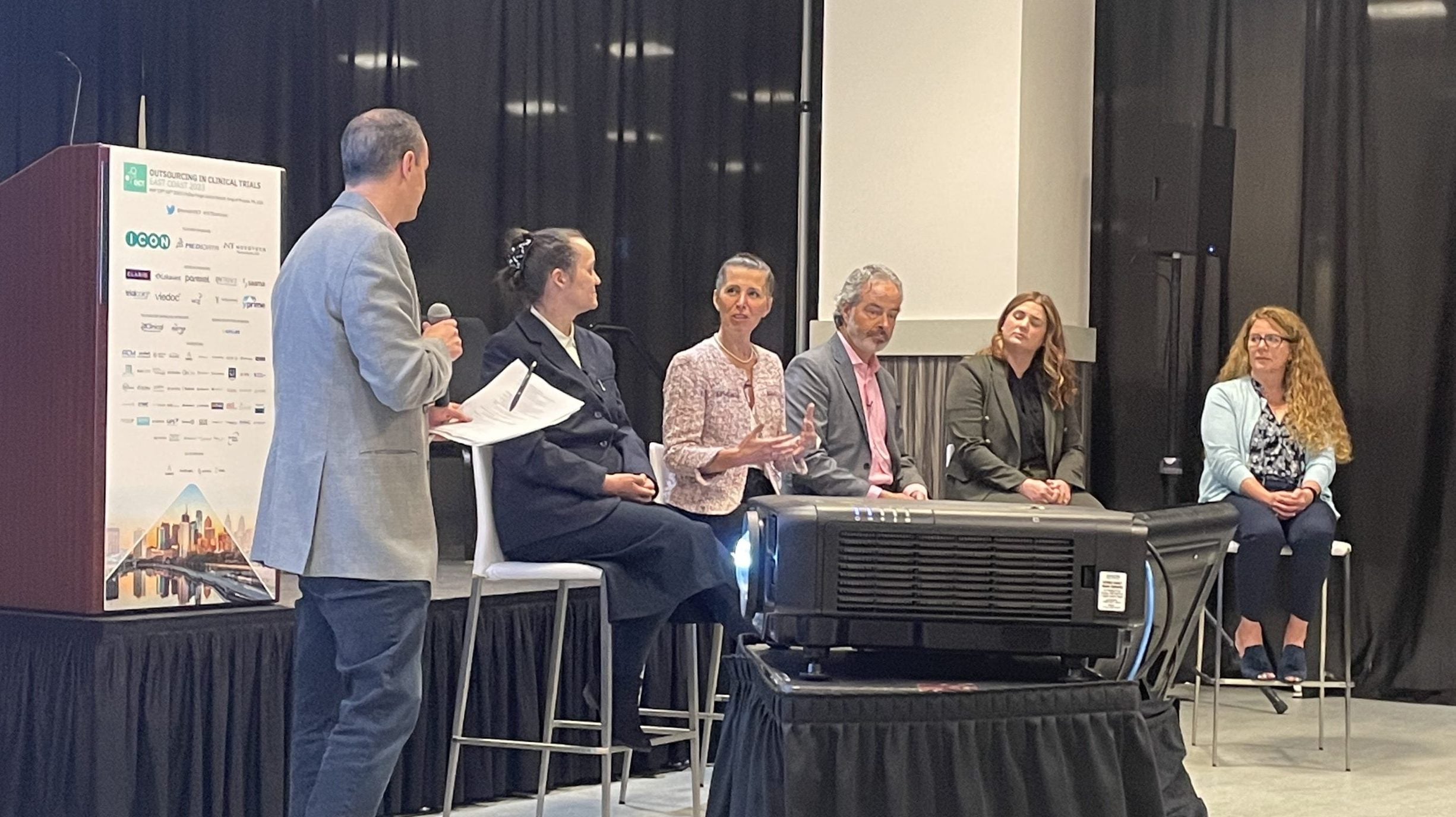

Decentralised clinical trials (DCTs) have been heralded as the clearcut future of pharma clinical research. But a panel of industry experts pointed to pitfalls in their initial rollout, calling for industry-wide course correction at the Outsourcing in Clinical Trials East Coast conference.
During the panel, speakers from pharma companies and service providers began by listing key concerns with the current state of DCTs. Incompatible protocol designs and clunky user interfaces in new technologies have both dampened the patient experience in many studies.

Discover B2B Marketing That Performs
Combine business intelligence and editorial excellence to reach engaged professionals across 36 leading media platforms.
However, the speakers closed the panel on a much more positive tone. If sponsors and service providers can better prioritise patients, offering a mix of both traditional and DCT features depending on the situation, then many features of DCTs could live up to their initial promises.
DCT shortcomings in pharma
During the initial rollout of DCTs, panellists said many study protocols were not well designed to incorporate virtual elements. “It was like trying to fit a square peg in a round hole,” said Candice Estes, a clinical trial manager at Incyte.
In many cases, DCTs have not lived up to their promise of broadening patient access, added Susan Maloney, head of clinical operations at PhaseBio Pharmaceuticals. Many rural areas still do not have adequate providers to support home visits, and several prominent rare disease investigators have remained reluctant to opt into virtual sites, she explained.
In addition, some new devices and wearables have increased patient burden, particularly for older patients with less technological savvy, said Dominique Duchesne, vice president and global head of clinical operations at Ichnos Sciences. The often times clunky rollout of new DCT technologies has ultimately affected a wide range of patients, added Merck’s Anka Ehrhardt. “Even patients that are open to technology are not necessarily comfortable with it,” she said.

US Tariffs are shifting - will you react or anticipate?
Don’t let policy changes catch you off guard. Stay proactive with real-time data and expert analysis.
By GlobalDataA brighter future for DCTs?
While panellists had qualms with how DCTs have been implemented, they still held hope for the future. In particular, they said sponsors and service providers could learn from previous shortcomings to build a future, patient-centric vision for DCTs.
Going forward, more trials will likely have hybrid models, where they utilise elements of DCTs and traditional studies that fit an individual patient’s particular needs, said Medidata’s Keith Kennedy. Pharma companies and CROs have already begun adjusting their relationship to prepare for a more hybridised approach to clinical development.
Above all, panellists agreed that emphasising the patient perspective will prove key in moving forward DCTs.
Decentralised Clinical Trial coverage in Clinical Trials Arena is supported by Huma.
Editorial content is independently produced and follows the highest standards of journalistic integrity. Topic sponsors are not involved in the creation of editorial content.





